Speaking of the Nobel Prize
Today, 2 October 2023, is a wonderful, exceptional day because newspapers and news portals open with good news. Katalin Karikó, together with her colleague, immunologist Drew Weissman, has been awarded the Nobel Prize for their discovery of the mRNA vaccine against COVID-19.
The Nobel Committee also said at the announcement that "the vaccines have been administered more than 13 billion times, saved millions of lives, and prevented millions of serious cases of COVID-19".
Naturally, Nature also has a long article on the award winners, with Katalin Karikó's name being the first to be mentioned. There could be several explanations for this, but it is also justified because it was her to start working on this topic, and even carried it through. So we have this prize, which is no longer about money, as both of them have won so many prizes, including the $3 million Breakthrough Prize for the greatest discovery of the year, that it is not a total of $1 million (or two-thirds of it, the rest is tax deductible) that is more important than the Nobel Prize, but the Nobel gold medal.
It's also noteworthy that the article mentions Kariko as a fellow of the University of Szeged in Hungary, so this university already has two Nobel laureates, which is unmatched in Hungary, and speaking of numbers, 13 is not an unlucky number either, at least not for Katalin, because she is the 13th female scientist to win the Nobel Prize in Medicine/Physiology.
Of course, winners are sought from countless places to comment on their achievements, plans, and so on, and even more naturally, Kariko also highlighted in her response to Nature what is important not just and exclusively for scientists: 'Hopefully this prize will inspire women, immigrants, and all young people to be persistent and resilient. That is what I hope."
Our sincere congratulations to both of the winners, and thank you to Katalin Karikó for setting an example, and of course for the award. Because there is no question that it is "our" prize since the Nobel Prize is as much a shared merit as Olympic gold. Our first Nobel Prize was won by a woman. At least this data is the same everywhere.
Because how many Nobel Prizes we have in total is not clear. The most enthusiastic articles mentioned 16 or 11 - including the prize for Katalin Kariko - but this is by no means accurate.
On the Internet, where you can read almost everything and almost everything to the contrary, the list of Hungarian Nobel Prize winners starts with the Nobel Prize in Physics, which Fülöp Lénárd received in 1905 (although he had already been expecting it in 1901, however, Röntgen alone received it, in spite of their common work). Lénárd could speak Hungarian, was born in Budapest, was a member of the Hungarian Academy of Sciences until 1946, and maintained his ties with Hungarian academia until the end of his life, but he did not consider himself Hungarian, but Austrian. We should respect that, even if it means one less Nobel Prize to boast of.
I also have my doubts about the Hungarianness of Róbert Bárány, born in Vienna in 1876, who won the Nobel Prize for his work clarifying the physiology and pathology of human vestibular apparatus. No doubt, Várpalota, where his father was from, is a Hungarian town, but his mother was the daughter of a scientist from Prague, and I have not read much about Bárány's boasting of his Hungarian origins. Nor have I read that he spoke Hungarian. But before I exclude him from my own list, I would at least e-mail his grandson, who is a physicist, a good writer, and lives in Sweden, but spells his name Barany - without accents - although Swedish has a good number of accented letters.
Richárd Zsigmondy, who invented the ultramicroscope and described the heterogeneous nature of colloidal solutions, I would count as Hungarian, despite the fact that he was born in Vienna (1865) and died in Göttingen (1929), because 'his family and relatives kept his Hungarian identity alive in him, and he repeatedly mentioned this in his statements'. This is his choice, which we can be happy about. Although elsewhere we read that "he had no connection with Hungarian culture". So much for the safety and reliability of material collected on the Internet.
Albert Szent-Györgyi was undoubtedly Hungarian, as was György Hevesy, who recognized the use of isotopes as indicators, one of the most effective methods of medical investigation, also Hungarian, although he lived and died in Freiburg for many years. György Békésy, who won the Nobel Prize in Medicine for his discoveries of the physical mechanism of stimulation within the cochlea, is not simply Hungarian but is one of our exceptional Nobel laureates who did a large part of their prize-winning research in Hungary. If he had been allowed to go to Harvard for a while from Karolinska, where he was allowed to travel, he might not have emigrated in 1949, since after a short 16 years he was no longer comfortable at Harvard and went to Honolulu.
Among the 'Martians' who, according to Leo Szilárd, called themselves Hungarian, are Jenő Wigner, our second (or first) Nobel Prize winner in physics, and no doubt Dénes Gábor, our next Nobel Prize winner in physics, who lived already in England when he invented the holographic method that won him the prize.
The biography of Milton Friedman (1912-2006) who won the Nobel Prize in Economics in 1976 mentions that he was "born in the Kingdom of Hungary, in Berehovo, Transcarpathia (now Ukraine), to Jewish immigrants", as does the biography of 1976 Nobel Prize winner in Medicine Carleton Daniel Gajdusek (1923-2008), that his maternal grandmother came from a Calvinist family in Debrecen, but nothing more is written about his Hungarian connections, and one can hardly read that their Hungarian ancestors were as important to them as they are to us, when we count our Nobel Prize winners, as Moliere's miser counts his gold.
How different is the case of János Károly Polányi, winner of the shared Nobel Prize in Chemistry for his discoveries on the dynamics of elementary chemical processes, who was born in Berlin, but into a family that considered itself Hungarian, even if they had several nationalities (Hungarian, German, Canadian).
The Nobel Peace Prize laureate Elie Wiesel (1928-2016), however, cannot be said to be more our own than that of humanity in general, even if we know that he was born in Maramures Island in 1928. His mother tongue was not Hungarian but Yiddish and it is true that he knew Hungarian (in addition to German and Romanian), but he never wrote any of his works in that language. We are no richer for having his Nobel Prize as our own.
1994 was quite an exceptional year for us. Two "Hungarian Americans" were awarded the Nobel Prize. János Harsányi, who, like János Neumann and Jenő Wigner, was a student at the then highly renowned Fasori Gymnasium, only to find that by 1948 he had more than one reason to leave Hungary, and György Oláh (1927-2017) won the Nobel Prize in Chemistry for his "contribution to carbocation chemistry". He left Budapest in 1956. This fact also needs no explanation. He lived in Beverly Hills, but was buried in Budapest according to his own wishes.
The list of 16 or 11, including Kariko, ends with Imre Kertész (1929-2016), who was awarded the Nobel Prize for Literature in 2002. His prize for his book Sorstalanság was described as not only the first Hungarian writer to win the award but the second, along with Albert Szent-Györgyi, to be awarded for his work in Hungary. As we have seen, the second was György Békésy. However, this does not affect the value of the prize. And that is not the reason why the list is inaccurate.
If we consider everybody who had Hungarian ancestry, was born in Hungary, and even speaks Hungarian, we have left out a very nice person, who is not only a very knowledgeable person but also a very nice person, the 2004 Nobel Prize winner Avram Hersko, who lives in Israel. He was born in 1937 in Karcag, as Ferenc Herskó, he was awarded the shared Nobel Prize in Chemistry for his work on the role of the ubiquitin system in the breakdown of proteins within cells. He was happy when he came home, happy when a school was named after him in Karcag, and is happy to meet Hungarians in Israel.
On our 'shortlist', Katalin Kariko is the 12th and the first woman Nobel laureate.
Anyway, it means 1.2 Nobel Prizes for every million people living in Hungary! While this is certainly a worse ratio than for Israel, who are slightly fewer than us with 13 Nobel Prizes by 2021, we are still ahead by one important measure. We have an 11:1 ratio of men: women prizes, compared to theis12:1*!
PS Sic transit gloria mundi...
Our lead is now gone. Thanks to Ferenc Krausz's Nobel Prize in Physics, the score is tied.
But I don't think anyone is upset about that.
* Israel's female Nobel laureate Ada Jonat (2009).





